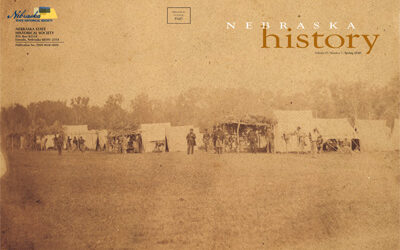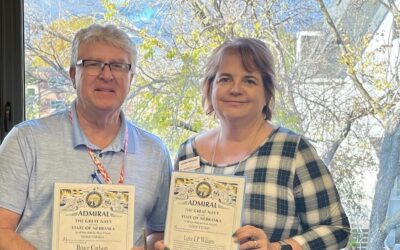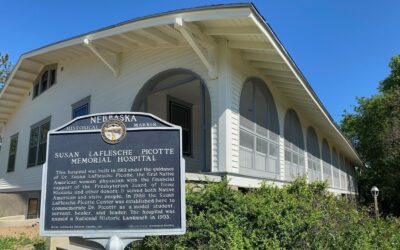Firefighting in 1800s Nebraska was never easy and frequently chaotic.

Firefighting in Nebraska’s pioneer communities was almost always difficult. The Daily State Journal (Lincoln) of May 12, 1878, reported of a small fire near the business district:
About 5 o’clock yesterday evening, while the severe wind storm which prevailed during the day, was at its height, the alarm of fire was sounded. The city was in an uproar of excitement; . . . The wind at the time was from the north-east, and many of those in the business part of the city was unable to hear the cry of fire on this account. But the fire bell soon brought them to their feet, and in a moment O St. was thronged from 9th to 12th and the anxious inquiry ‘Where is the fire?’ was asked a thousand times. Finally, the fire was located on P street between 12th and 13th, and the mass of humanity flocked in that direction. It proved to be in one of the cottages on the south side of that street, . . . The fire seemed to be between the roof and the chimney, and a dense, heavy smoke was oozing out between the roof and the chimney when our reporter arrived. A few buckets of water passed to men sitting on the cone of the roof soon quenched the fire, . . . The [mule-drawn] steam fire engine arrived shortly after the fire was quenched, and would no doubt have rendered good work if its services had been required.
The steamer was driven through the streets of the city at a furious rate of speed,” and knocked down and passed over a child, who fortunately was not struck by the hooves of the mules or the wheels of the steamer. “On the corner of 12th and P, Messrs. [Charles H.] Gere and [Hiram D.] Hathaway of the JOURNAL were going to the fire in a buggy, when they were overtaken by the steamer, the front wheels of which struck the hind wheels of the buggy, upsetting the vehicle and throwing the gentlemen violently to the ground.” Neither man was seriously injured, reported the Journal, and the buggy sustained only a broken rear axle.
Many censures the driver, Mr. George _______, for furious driving, but they must remember that the most intense excitement prevailed with our people, and we presume he too was excited and anxious to be at the scene of the fire. . . . George regrets as much as anyone that the accidents happened, and we think it will be a lesson to him hereafter to drive with more care.



